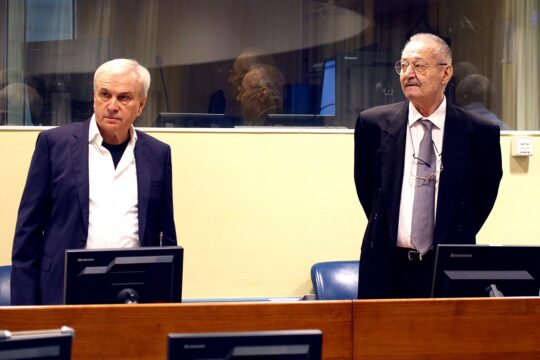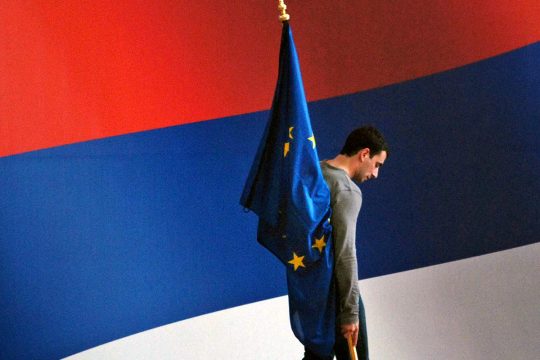Serbian director Ognjen Glavonic says the topic of his new film, which tackles the lingering horror of the Kosovo war, probably explains why his script was rejected seven times.
"Teret" (The Load), which will screen at Cannes on Saturday, addresses one of the grim secrets revealed after the war, a taboo subject in a country still struggling to confront its past.
It follows Vlada, a truck driver on the road from Kosovo to Belgrade, who discovers that he is transporting the bodies of victims from war crimes committed by Serb forces in Kosovo.
Most of them are ethnic Albanian civilians, including many women and children.
Based on real events, the bodies are transported to Serbia to be buried in mass graves in a bid to cover up the truth about the last of the wars that tore apart the former Yugoslavia.
The 1998-1999 conflict killed some 13,000 people, including 11,000 ethnic Albanians and ended with the NATO bombing of Serbia.
In 2001, just after the fall of Serbian strongman Slobodan Milosevic, the Serbian authorities announced the discovery near Belgrade of the remains of 744 people, mainly Kosovo Albanians.
- 'Depth of mystery' -
The mass grave was found in Batajnica, about 15 kilometres (nine miles) from the centre of Belgrade, at a special police unit camp.
But nearly 20 years on, the case has been largely forgotten and for the passing traveller, it is just a motorway exit between Belgrade and its airport.
Calls for a memorial have received less support than requests to build an Orthodox church near the site.
"I heard about the mass grave in Batajnica in 2009," Glavonic, who was studying cinema in Belgrade at the time, told AFP.
"Nobody knew anything about it. I asked my parents, my family, my teachers. Nothing."
It was the "depth of the mystery around the case that awakened my desire to talk about it," the 33-year-old said.
Glavonic first delved in to the story with the documentary "Depth 2" before embarking on a movie that has taken seven years to see the light of day.
The publicly funded Film Center rejected his screenplay seven times.
"I think that the theme partly explains these rejections," he said.
"It may be for the better. I'm more mature. Seven years ago it would not have been the same movie," said the director, who grew up in the suburbs of Belgrade.
- Vlada's doubts -
It is when Vlada discovers the nature of his cargo that the doubt-filled protagonist is tested, Glavonic said.
"He understands the truth about himself, the country where he lives and the war," he said.
"I wanted to give the viewer the opportunity to put himself in his place, to think about what one would have done.
"The war and the horror are always present but in the background."
Glavonic said he is not afraid of the reaction to his film in a country where those who question the actions of authorities in the 1990s are often labelled traitors by nationalists or tabloids.
"People are afraid of doctors, dentists, as children fear their first injection, but it is something that will eventually bring them good," Glavonic said.
The film will be presented out of competition in the Director's Fortnight section at the world-famous festival.
The young director, who is making his debut at Cannes, follows in the footsteps of many greats of former Yugoslavia's cinema.
But he declined to compare himself with renowned filmmakers Denis Tanovic, Emir Kusturica or Aleksandar Petrovic, all previous winners of the festival's top prize, the Palme d'Or.
"I'm not competing for prizes," he said.




